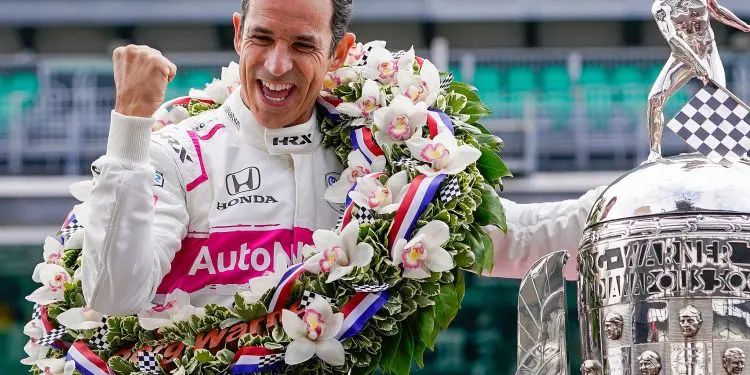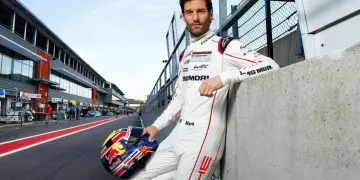The 2025 NASCAR Cup Series season is off to a fiery start, and the green flag hasn’t even dropped yet. Motorsport legend Helio Castroneves, a four-time Indy 500 champion, is set to make his NASCAR debut at the Daytona 500, driving Trackhouse Racing’s No. 91 Chevrolet. While his crossover into NASCAR has generated immense excitement, it has also ignited a storm of controversy thanks to a rule change that guarantees his spot in the race.
The Rule Change That Changed Everything
Castroneves’ participation was secured via NASCAR’s new Open Exemption Provision (OEP) rule, which guarantees starting spots for world-class drivers making select NASCAR appearances. However, this rule comes with strings attached: drivers utilizing the OEP are ineligible for prize money and championship points.
The controversy arises from the implications of this rule on established NASCAR veterans. As it stands, the OEP allows Castroneves to compete as a 41st car in a race typically capped at 40 entries. Meanwhile, NASCAR champions Martin Truex Jr. and Jimmie Johnson, who will race under “open car” entries, are not guaranteed spots, potentially leaving them out of the Daytona 500 if they fail to qualify.
Jordan Bianchi: “It’s Unnecessary”
Motorsport insider Jordan Bianchi didn’t hold back on the latest episode of The Teardown Podcast, calling the rule change “unnecessary” and questioning its fairness.
“It’s going to be weird that Helio Castroneves is in the Daytona 500, and theoretically, both Truex and Jimmie Johnson could miss the race,” Bianchi said. “These are recent NASCAR champions. Truex was a playoff driver last year, and he missed the race. I don’t feel like it’s an indictment on the driver, but the one word I keep coming back to is ‘unnecessary.’”
Bianchi’s comments resonate with NASCAR fans who believe legends like Jimmie Johnson, a seven-time Cup Series champion, should receive preferential treatment over motorsport crossovers. Johnson’s struggles in the 2024 Daytona 500, where he battled with an underperforming car to qualify, have only added fuel to the fire.
The Fans’ Perspective: Veterans Over Celebrities
Many NASCAR fans share Bianchi’s sentiment, arguing that the Open Exemption Provision should prioritize NASCAR veterans over drivers from other series. While Castroneves’ inclusion is a marketing boon for NASCAR, critics believe it undermines the integrity of the sport by potentially sidelining championship-caliber drivers.
“Jimmie Johnson has done so much for this sport. To see him fighting for a spot while another driver gets a free pass feels wrong,” one fan tweeted. Others echoed the sentiment, calling for NASCAR to balance its desire for global appeal with respect for its core drivers.
Castroneves’ Take and the Bigger Picture
For his part, Helio Castroneves remains focused on making his NASCAR debut a success. “This is a dream come true for me,” Castroneves said. “I respect the NASCAR veterans and know how hard they’ve worked. I’m honored to have this opportunity, and I’m ready to give it my all.”
From NASCAR’s perspective, the OEP rule is a strategic move to attract international motorsport stars and expand the series’ global appeal. Castroneves’ participation is a high-profile way to draw IndyCar fans into the NASCAR fold, potentially boosting viewership and engagement.
The Road Ahead: What’s at Stake?
The Daytona 500 has long been a marquee event in motorsports, and 2025 will be no different. However, the controversy surrounding the OEP rule could overshadow the race itself if drivers like Truex Jr. or Johnson fail to qualify. NASCAR faces the challenge of balancing its push for global expansion with the traditions and values that made it a cornerstone of American motorsport.







